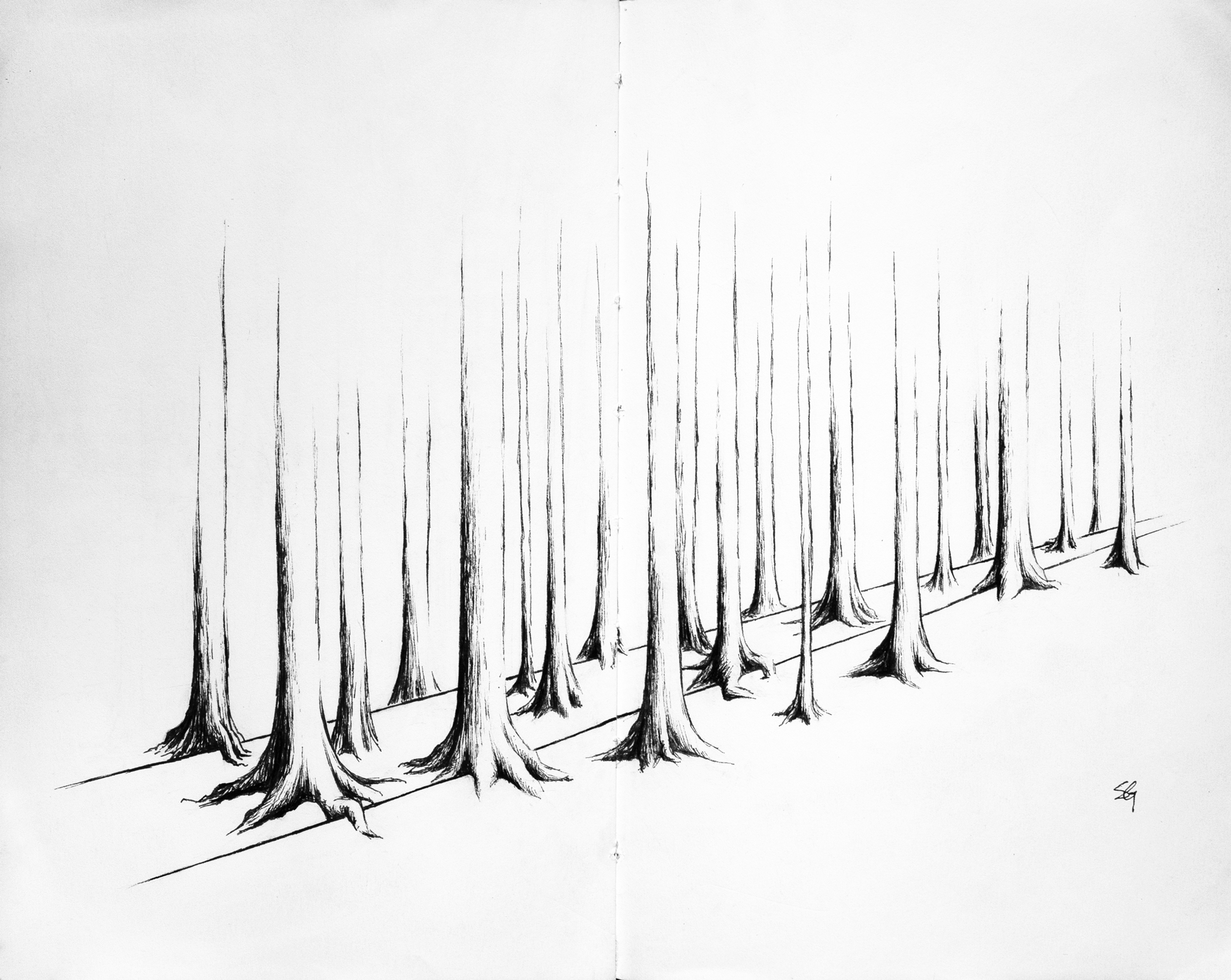To catapult into the furthest reaches of Iceland and then crash land in a city as established, as old, as civilized as Berlin is jarring, but it is also a relief. After a week of living outside, the simplicity of walking into a building always overwhelms.
But Berlin is beautiful, and it is easy to be in. There is always, it seems, enough space. There is always enough time. The people you pass on the street in Berlin are enjoying themselves, or they are grounded, or they are thoughtful. It’s always hard for me to decide whether to give the city or its inhabitants credit for the inimitable Good City Feeling that emanates from the doorways and underpasses and manholes in places like Berlin – of course, credit goes to both; the synthesis of culture and surroundings and history and temperament that makes a place durable, energetic, unique.
Spending four gray summer days here felt like a soft introduction to Europe – here, those days said, here is the art you are looking for. Here is the grandeur. Here are an abundance of cappuccinos. But don’t worry: you will not find yourself gasping for air in an overheated plaza at 3pm; you will always be able to find, when you need it, cold beer, easy; there is a washing machine in the apartment you are staying in; you need not smell like Iceland forever.
I had been to Berlin a couple of times before, visiting Sam during the semester I spent in Paris. Then, too, I was struck by the vividness of the history; the aliveness of WWII and communism in the bullet-ridden or Soviet-engineered facades of buildings; in the small and subtle gold bricks nestled among the other cobblestones in front of houses where Jewish people had lived before Hitler. The simultaneity of past and present existing together gives Berlin a vibrancy; a good heart.
One morning, we took the train to the train station at Grunewald. We got off the train and walked down an ordinary passageway toward the exit. But before we got there, we took a left. We walked up ordinary stairs. And then rather than standing in Bahnhof Grunewald, we were standing at Gleis 17 – a train track from which the Nazis deported Jews during the war. A track from which the trains you read about in elementary school – stuffed so full of people they could not sit down, could not breathe, could not see – left the city. One of the stations where, on gray mornings like the one when we visited, or perhaps on brilliantly blue ones, parades of people – of teachers, of doctors, of artists, of children who had not finished their homework, of teenagers in love – were marched out of their lives, unceremoniously, like a life is something you can be marched out of.
The Nazis kept meticulous records, so there are detailed recordings of when the trains left, and how many people were on board, and where they went. 1012 Juden. 18 Juden. 253 Juden. The trains were bound for Poland, for the outer reaches of Germany, for Austria. Auschwitz. Auschwitz. Auschwitz. The dates continue until the beginning of May, 1945. Days before the war ended. Days.
Growing up Jewish, there is a premium placed on remembrance. Remember when we were slaves, the dialogue goes. Remember when this happened to us. As a child, that rhetoric is uncomfortable, and vaguely irritating: But I have never been a slave. Nothing like that has ever happened to me. Standing on the platform at Gleis 17, I found myself overwhelmingly grateful to have been raised with this vocabulary. I felt, suddenly, the benefit of having been asked to remember, to imagine, to keep present a history that has not always felt intrinsically like mine. Remembrance was suddenly not a burden, the way it sometimes seems when you are seven, waiting for the next interminable glass of wine to pass at a Seder. Remembrance became empathy. It became a tonic. It became power.
During the same week that we learned families at the southern border of the United States had been forcibly separated, I stood on the train platform where mere decades ago, children were taken from their parents by a government that wanted to maintain a tenuous and insidious control. And I realized the benefit of having been taught to remember: I know that there is no difference between me and them. I know that there is no reason that I was not separated from my family too.
We are not born deserving more or less humane treatment because of the country in which we live. Because of the whims of the selfish, fearful, egotistical people in power.
Obviously.
Obviously.
Let us not continue to accept even a modicum of compromise when it comes to basic human rights. Let us not distance ourselves from the raw humanity of our neighbors, of our own families, of the people in the news. Let us invent no more pitiful excuses for why this is happening to someone else, rather than ourselves.
Let us remember when we were slaves.
